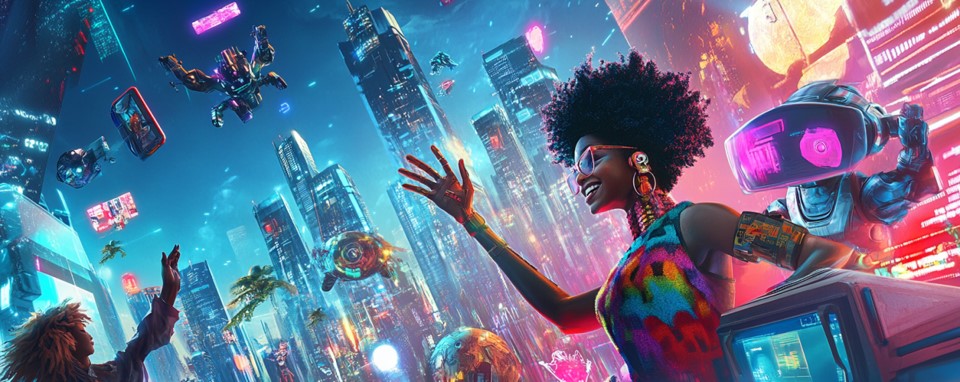
The metaverse👉 A persistent, immersive virtual world connecting digital and physical realities. is an emerging concept that represents the convergence of physical and virtual realities, enabled by advancements in technologies such as virtual reality (VR), augmented reality (AR), and blockchain. It is envisioned as a shared, immersive, and persistent virtual environment where people can interact, work, play, and socialize in a seamless and interconnected manner, transcending the boundaries of the physical world.
The metaverse is a virtual universe that combines various digital spaces, platforms, and experiences into a unified, interoperable ecosystem. It is a collective virtual shared space that allows users to interact with a computer-generated environment and other users through avatars, digital representations of themselves. The metaverse aims to create a sense of presence and immersion, where users can engage in activities, attend events, and participate in virtual economies, just as they would in the physical world.
Key Characteristics of the Metaverse
- Interoperability👉 The ability to exchange and use information seamlessly across boundaries.
One of the core principles of the metaverse is interoperability, which allows users to move seamlessly between different virtual worlds and platforms, carrying their digital assets, identities, and experiences with them. This interconnectivity enables a more cohesive and integrated virtual experience, breaking down the barriers between different virtual environments. - Decentralization and Convergence
The metaverse is envisioned as a decentralized and open ecosystem, built on blockchain technology and Web3 principles. This decentralized nature ensures that no single entity has complete control over the metaverse, fostering a more democratic and collaborative environment. Additionally, the metaverse aims to converge the physical and digital realms, blurring the lines between the two and creating a seamless transition between them.
Multiple Contributors
The metaverse is not a singular platform or environment; rather, it is a collective effort involving multiple contributors, including technology companies, developers, creators, and users. This collaborative approach allows for a diverse range of experiences, content, and applications to be integrated into the metaverse, fostering innovation👉 Practical application of new ideas to create value. and creativity.
Applications and Potential Impact
The metaverse has the potential to revolutionize various aspects of our lives, including:
- Social Interactions
The metaverse offers new ways for people to connect, socialize, and collaborate in virtual spaces, transcending geographical boundaries. - Entertainment and Gaming
Immersive virtual environments can provide enhanced gaming experiences, virtual concerts, and other forms of entertainment. - Education and Training
Virtual simulations and interactive learning environments can enhance educational experiences and provide realistic training scenarios. - Commerce and Virtual Economies
The metaverse can facilitate virtual marketplaces, e-commerce, and the exchange of digital assets, creating new economic opportunities.